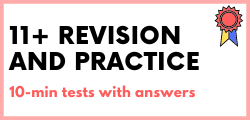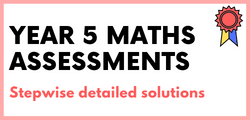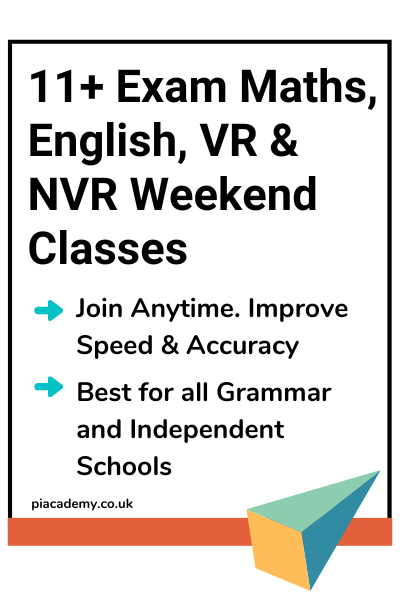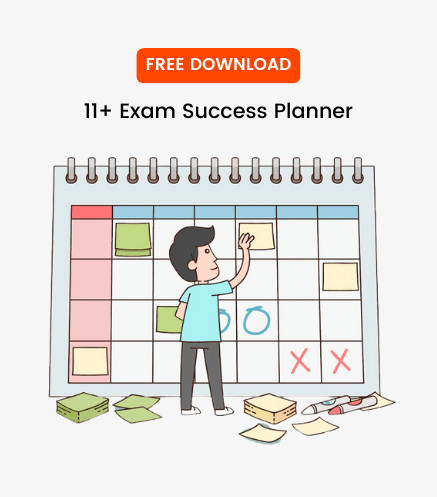The 11 plus NVR Exam
The 11+ or Eleven Plus is an examination conducted in the UK to determine a child’s suitability for admission into Year Six in various schools. It consists of a written exam and a practical exam. This article will teach you how to prepare for the exam using 11+ non-verbal reasoning tips. The written exam tests reading, writing, and speaking in English. The practical exam tests verbal and non-verbal reasoning skills.
The 11+ non-verbal exam is an important exam for students in the UK. The non-verbal reasoning test can be tough but with adequate preparation, the candidate can face the exam with confidence. It pays to begin the preparation a couple of years before the student has to attempt the 11plus exam. This will enable the aspirant to understand the format of the exam and the type of non-verbal reasoning questions that may be asked. It will also give the student time to prepare for the exam by practicing using the 11+ verbal reasoning tips given further in this article.
This is a key examination for your child. It is, therefore, necessary that you take a keen interest in understanding the format and syllabus of the exam yourself so that you can prepare your child adequately.
Non-Verbal Reasoning syllabus for the 11-plus Exam
The 11+ non-verbal reasoning exam uses tests in spatial reasoning. Different kinds of tests are added each year so the exam is always a challenge to face. The general nonverbal reasoning syllabus for the exam is as follows:
- Nets of cubes: The candidate is shown a net of a cube and then provided with options of different cubes. The candidate must correctly select the cube that can be made out of the net shown.
- Reflections and rotations: The candidate has to select the correct option from the set provided to match the given shape if it is rotated 90 degrees or 180 degrees (clockwise or anti-clockwise) or if it is reflected in a mirror.
- Folding and punching: The candidate is shown folded paper with holes punched in it. The student must then select the paper from the options provided that would be the result of the unfolding of the paper.
- 3D shapes: The aspirant has to imagine what a 3D shape would look like in 2D if viewed from a particular angle. The correct option must be selected from those provided.
The kinds of 11+exam questions asked may be as follows:
- Series: The candidate is required to deduce the relationship or rule that determines a given series and select the next in the series from the options provided.
- Analogies and like figures: The candidate is tested on their ability to find similarities between given shapes.
- Coded shapes: Shapes are assigned an alphabetical code. The aspirant must decode these and then select the code that is appropriate for the test shape given.
- Odd one out: The student must select the shape that doesn’t fit the pattern or logic of the rest of the shapes.
- Adding and taking away shapes: The aspirant must decide what shape will be the result of adding two shapes or seek out a smaller shape that’s hidden within a larger shape.
How to prepare for the 11+ NVR Exam
The 11+ Non-Verbal Reasoning Test is designed for students who wish to join Year 6 of schools in the UK. The test is designed as a gateway to ensure that students are on par with regular students in the UK in the same age range. The idea is to have students of the same level of competence in various subjects studying at the same level. This helps students achieve academic and other skill goals on a level playing field.
Students need to begin preparing a couple of years before they intend to take the 11+ exam. It is also important for parents, who are the primary facilitators for preparation for the test, to be well aware of the syllabus, method of questioning, and other aspects of the exam.
A wide range of online resources like non-verbal reasoning worksheets pdf, 11 plus non-verbal reasoning papers pdf, and 11+ non-verbal reasoning practice papers free are available for parents to help prepare their children for the 11+ Non-Verbal Reasoning Exam. Parents are advised to utilize these resources to help their children face the exam with confidence.
Top 10 11-plus Non-Verbal Reasoning Tips from Toppers
So you want to prepare your child to face the non-verbal reasoning 11+ test? You are in for a tough and demanding schedule. However, with these 11+ non-verbal reasoning tips from toppers, you should be able to help your child prepare well. By the time the exam comes around, your child will be well-set to tackle the exam with confidence!
10. Begin preparation for the 11+ Non-Verbal Reasoning Exam a couple of years in advance
You need to give your child plenty of opportunities to get familiar with the syllabus and the model of the exam. Therefore toppers advise that preparation begin at least two years before the child has to face the exam. That way, it gets plenty of time to revise the 11+ NVR exam syllabus thoroughly, as well as undergo mock tests that give it an idea of the question structure of the exam.
9. Don’t force the pace.
Linked to the point above, if you give your child a good two years to prepare, you will empower them to prepare at an easy pace. This is very important, as the child needs plenty of rest and playtime in addition to study time. Rest is a time when concepts become more understandable to the child. During periods of rest, the brain processes whatever the child has experienced and files it away so that the child can have instant access to it. Rest is thus a vital part of the preparation process and cannot be ignored.
You also need to remember that your child will be studying a lot of other material besides the preparation material for this examination. There will be school work, homework, and preparation for other subjects as well. In addition, if your child is on a sports team or other team at school, time will have to be made to accommodate practice sessions and meets.
8. Don’t forget nutrition.
Your child needs the right foods to help give it energy as well as brain-building material. These are the formative years for your child and a good diet is vital for physical and mental development.
If necessary, consult a nutritionist so that you can give your child a balanced diet.
7. Make time for exercise.
Along with a healthy diet and rest, your child needs exercise. This is very important even for the mental and emotional development of the child. At this stage in a child’s life, exercise must also be fun so make sure your child can play with others. Let them run around and let off steam. It’s all good for them!
6. Set realistic study goals.
Another advantage of starting the preparation process early is that you get time to set realistic study goals. The child should have a chance to grasp concepts, practice them and integrate them into knowledge. Trying to force the child to absorb too much at too rapid a pace is counter-productive and may demotivate the child.
It is also important to understand that children love to feel that they are in charge of their learning. By setting realistic study goals and giving the child time to explore concepts on its own, you empower it to seek knowledge on its own. This will also give the child a feeling of accomplishment and will help cement the concepts in the child’s mind.
5. 11 + Non-Verbal Reasoning past papers and sample papers are your friends!
Sample papers and, in some cases past papers, are available to help your child get a feel of the structure of the exams. This is very important because the regular school system does not test reasoning skills directly. The 11+ Non-Verbal Reasoning Test is focused on such testing and therefore will have questions that are not encountered in school.
Avoid the temptation to have the child simply read up sample papers. Instead, use them – along with solved papers – to conduct mock tests for the child. This will give the child a sense of the seriousness of the exam. It will also help train the child to answer the questions with speed and accuracy.
Once the child has undergone a mock test, use the non-verbal reasoning 11 plus solved papers to check the answers. You can make it a fun activity for the child by having it check and grade its papers. If your child is part of a group of children preparing for the exam, they can grade each other’s papers.
4. Treat 11+ NVR mock exams like the real thing.
Set aside a time for the mock exams. Make sure friends and family know that your child is not to be disturbed for the duration of the mock exam. Set a timer at the start of the exam and take away the child’s paper when the timer goes off. Over some time, the child will automatically learn to pace himself during the test so that it finishes well in time. This is vital at the time of the actual 11-plus non-verbal reasoning exam!
3. Make a timetable for the 11+ Nonverbal Reasoning Exam.
The 11-plus exam timetable is vital in the run-up to the examination. It helps you schedule time for preparation for other subjects as well. Children are very comfortable using timetables. Their school day is regulated by timetables and they learn to perform tasks according to that timetable. Thus, making a timetable not only ensures that all subjects will be covered but that the child itself feels comfortable with the study plan.
The 11+ nonverbal reasoning exam timetable also ensures that the child gets plenty of rest and recreation, which we have seen is vital to its preparation.
2. Familiarise yourself with the 11+ NVR Exam syllabus.
As the one who is primarily helping your child to prepare, you must become familiar with the 11+ nonverbal reasoning syllabus. Don’t hesitate to ask other parents or teachers for help if you cannot understand a particular topic in the syllabus. If you take the time to prepare yourself on the syllabus, you’ll be all set to handle your child’s queries.
1. Check the local body website for 11 plus non-verbal reasoning Exam details.
Details of the 11+ NVR exams are posted on the website of the local government body. Do check the relevant website to get important information such as schools in the area, syllabi, dates for registration, exam dates, etc.
Preparing your child for the 11+ Non-Verbal Reasoning Exam need not be a stressful experience for either of you. Use the above 11+ non-verbal reasoning tips to tackle the preparation and help your child face the 11+ NVR exam with confidence!


















































